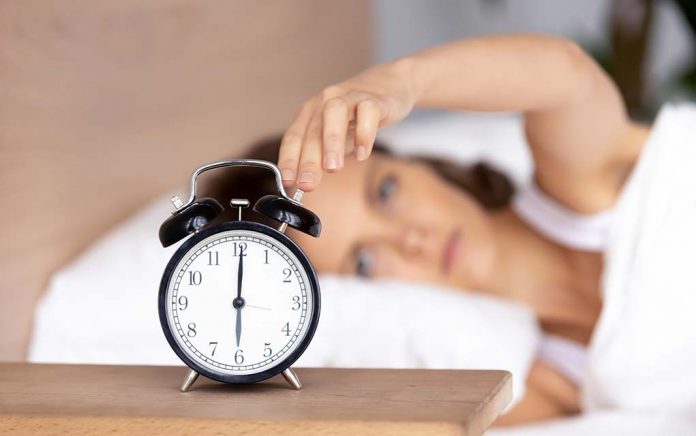
If you feel like the best sleep you get all night happens in the minutes between your alarm and the snooze alarm, you’re not alone. Approximately 85% of people get up with an alarm. While some wake up ready to roll, some of us hit the snooze button several times before we finally drag ourselves out of bed. Are those extra nine-minute increments really helping us feel rested? Let’s find out.
Are You Getting More Rest in Nine Minute Increments?
It’s common to wake up feeling super tired in the morning. We’ve all been there at some point. Insomnia, worry about grades, late-night study sessions, parties, stress and many other factors can cause us to chronically miss sleep. So we hit snooze for as long as we can and some of us even do so until we stumble into class in our slippers.
But the truth is, the director of Sleep Disorders Research, Dr. Reena Mehra says that hitting snooze is not providing us any extra rest. Human sleep cycles vary, but the deepest, most restful sleep, REM sleep, takes time to reach. We may drift back to sleep after hitting the snooze button, but the next alarm goes off before we get back to REM sleep — so the sleep isn’t really restful.
Alarm Choices
How our morning starts can often set the stage for how the rest of the day will go.
When you set your alarm, do you set it for the actual time you need to get up, or do you allow extra time for snoozing? If you’re padding your alarm time to include snooze, it’s probably better to just set the alarm for a later time and get that uninterrupted sleep.
If you’re setting it for the time you need to get up, but end up staying in bed for another twenty minutes or so, you’re setting yourself up for a rushed and harried morning. Look at your morning time frame and consider whether hitting snooze actually gets you off to a better start.
Are You Really Tired When the Alarm Goes Off?
It can be hard to get out of bed, especially on a cold morning when getting up means facing down that prof who seems to hate you. But are you really still sleepy when the alarm goes off, or do you just want to stay comfy and cozy in your blankets a little longer? Maybe you could schedule some in-bed study time to satisfy that need without setting yourself up for failing a class.
If you truly need more sleep and have difficulty waking up — not just getting out of bed — then you may have an underlying sleep disorder or might just need to go to bed earlier. Be sure to mention this to your physician at your next appointment.
Your Body After Hitting Snooze
When you first wake up, sleep inertia can make you feel tired and slow to move. The effect can last anywhere between 1 minute and 4 hours, but generally only sticks around for about half an hour. Until then, it can affect your mood, memory and judgment. So maybe the brisk walk to class is actually in your favor?
When you continuously hit the snooze button, you may be setting your body up for a miserable few hours. Studies have shown that people who use the snooze button are more likely to feel groggy than those who don’t — so in the interest of productivity, we’re trying to break the habit.
Hitting the snooze button may seem helpful when you’re desperate for those few extra minutes, but it might not be the best choice. It could leave you feeling even more tired, affecting your mood and productivity for hours. If at all possible, stop snoozing and carpe that diem.








